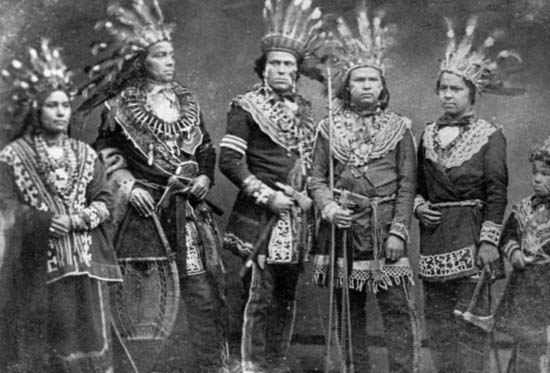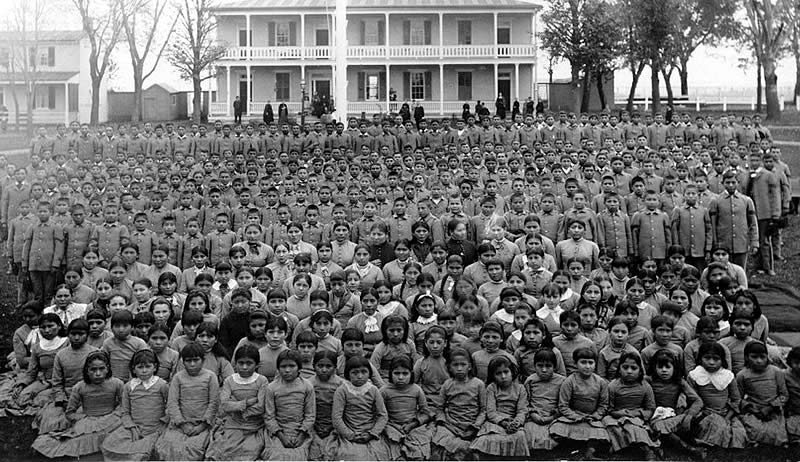|
Brenda Child
Brenda J. Child is an Ojibwe historian and author. Biography Brenda J. Child is a citizen of the Red Lake band of Chippewa and a historian. She is Northrop Professor of American Studies at the University of Minnesota. Her scholarship focuses on American Indian history, including the legacy of American Indian boarding schools in the United States, the role of Ojibwe women in preserving culture, Indigenous education, social history, and the historical legacy of the jingle dress. She also published an award-winning children's book, ''Bowwow Powwow Bagosenjige-niimi’idim''. She has served as president of the Native American and Indigenous Studies Association from 2017 to 2018. Dr. Child has worked closely with several museums and heritage organizations, including the Minnesota Historical Society. She was a trustee of the National Museum of the American Indian-Smithsonian where she served on the Repatriation Committee, Executive Committee, and the Scholarship and Collections Commi ... [...More Info...] [...Related Items...] OR: [Wikipedia] [Google] [Baidu] |
Jingle Dress
Jingle dress is a First Nations and Native American women's pow wow regalia and dance. North Central College associate professor Matthew Krystal notes, in his book, ''Indigenous Dance and Dancing Indian: Contested Representation in the Global Era'', that "Whereas men's styles offer Grass Dance as a healing themed dance, women may select Jingle Dress Dance." The regalia worn for the dance is a jingle dress, which includes ornamentation with multiple rows of metal, such as cones, that create a jingling sound as the dancer moves. Origins Origin of the jingle dress is attributed to three different Ojibwa communities: the Mille Lacs, Red Lake Band of Chippewa and the Whitefish Bay Ojibwe. In both the Mille Lacs and Whitefish Bay versions, the dress and the dance appeared in a recurring vivid dream that was realized about the year 1900. In both versions, the dream came to a ''Midewinini''. In both dreams, there were four women, each wearing a jingle dress and dancing. Each dr ... [...More Info...] [...Related Items...] OR: [Wikipedia] [Google] [Baidu] |
1959 Births
Events January * January 1 - Cuba: Fulgencio Batista flees Havana when the forces of Fidel Castro advance. * January 2 - Lunar probe Luna 1 was the first man-made object to attain escape velocity from Earth. It reached the vicinity of Earth's Moon, and was also the first spacecraft to be placed in heliocentric orbit. * January 3 ** The three southernmost atolls of the Maldive archipelago ( Addu Atoll, Huvadhu Atoll and Fuvahmulah island) declare independence. ** Alaska is admitted as the 49th U.S. state. * January 4 ** In Cuba, rebel troops led by Che Guevara and Camilo Cienfuegos enter the city of Havana. ** Léopoldville riots: At least 49 people are killed during clashes between the police and participants of a meeting of the ABAKO Party in Léopoldville in the Belgian Congo. * January 6 ** Fidel Castro arrives in Havana. ** The International Maritime Organization is inaugurated. * January 7 – The United States recognizes the new Cuban government of F ... [...More Info...] [...Related Items...] OR: [Wikipedia] [Google] [Baidu] |
American Women Academics
American(s) may refer to: * American, something of, from, or related to the United States of America, commonly known as the "United States" or "America" ** Americans, citizens and nationals of the United States of America ** American ancestry, people who self-identify their ancestry as "American" ** American English, the set of varieties of the English language native to the United States ** Native Americans in the United States, indigenous peoples of the United States * American, something of, from, or related to the Americas, also known as "America" ** Indigenous peoples of the Americas * American (word), for analysis and history of the meanings in various contexts Organizations * American Airlines, U.S.-based airline headquartered in Fort Worth, Texas * American Athletic Conference, an American college athletic conference * American Recordings (record label), a record label previously known as Def American * American University, in Washington, D.C. Sports teams Soccer * B ... [...More Info...] [...Related Items...] OR: [Wikipedia] [Google] [Baidu] |
Native American Women Academics
Native may refer to: People * Jus soli, citizenship by right of birth * Indigenous peoples, peoples with a set of specific rights based on their historical ties to a particular territory ** Native Americans (other) In arts and entertainment * Native (band), a French R&B band * Native (comics), a character in the X-Men comics universe * ''Native'' (album), a 2013 album by OneRepublic * ''Native'' (2016 film), a British science fiction film * ''The Native'', a Nigerian music magazine In science * Native (computing), software or data formats supported by a certain system * Native language, the language(s) a person has learned from birth * Native metal, any metal that is found in its metallic form, either pure or as an alloy, in nature * Native species In biogeography, a native species is indigenous to a given region or ecosystem if its presence in that region is the result of only local natural evolution (though often popularised as "with no human intervention") d ... [...More Info...] [...Related Items...] OR: [Wikipedia] [Google] [Baidu] |
Native American Academics
Native may refer to: People * Jus soli, citizenship by right of birth * Indigenous peoples, peoples with a set of specific rights based on their historical ties to a particular territory ** Native Americans (other) In arts and entertainment * Native (band), a French R&B band * Native (comics), a character in the X-Men comics universe * ''Native'' (album), a 2013 album by OneRepublic * ''Native'' (2016 film), a British science fiction film * ''The Native'', a Nigerian music magazine In science * Native (computing), software or data formats supported by a certain system * Native language, the language(s) a person has learned from birth * Native metal, any metal that is found in its metallic form, either pure or as an alloy, in nature * Native species, a species whose presence in a region is the result of only natural processes Other uses * Northeast Arizona Technological Institute of Vocational Education (NATIVE), a technology school district in the Arizona portion of ... [...More Info...] [...Related Items...] OR: [Wikipedia] [Google] [Baidu] |
Living People
Related categories * :Year of birth missing (living people) / :Year of birth unknown * :Date of birth missing (living people) / :Date of birth unknown * :Place of birth missing (living people) / :Place of birth unknown * :Year of death missing / :Year of death unknown * :Date of death missing / :Date of death unknown * :Place of death missing / :Place of death unknown * :Missing middle or first names See also * :Dead people * :Template:L, which generates this category or death years, and birth year and sort keys. : {{DEFAULTSORT:Living people 21st-century people People by status ... [...More Info...] [...Related Items...] OR: [Wikipedia] [Google] [Baidu] |
Ojibwe People's Dictionary
The Ojibwe, Ojibwa, Chippewa, or Saulteaux are an Anishinaabe people in what is currently southern Canada, the northern Midwestern United States, and Northern Plains. According to the U.S. census, in the United States Ojibwe people are one of the largest tribal populations among Native American peoples. In Canada, they are the second-largest First Nations population, surpassed only by the Cree. They are one of the most numerous Indigenous Peoples north of the Rio Grande. The Ojibwe population is approximately 320,000 people, with 170,742 living in the United States , and approximately 160,000 living in Canada. In the United States, there are 77,940 mainline Ojibwe; 76,760 Saulteaux; and 8,770 Mississauga, organized in 125 bands. In Canada, they live from western Quebec to eastern British Columbia. The Ojibwe language is Anishinaabemowin, a branch of the Algonquian language family. They are part of the Council of Three Fires (which also include the Odawa and Potawatomi) a ... [...More Info...] [...Related Items...] OR: [Wikipedia] [Google] [Baidu] |
American Indian Boarding Schools
American Indian boarding schools, also known more recently as American Indian residential schools, were established in the United States from the mid 17th to the early 20th centuries with a primary objective of "civilizing" or assimilating Native American children and youth into Euro-American culture. In the process, these schools denigrated Native American culture and made children give up their languages and religion. At the same time the schools provided a basic Western education. These boarding schools were first established by Christian missionaries of various denominations. The missionaries were often approved by the federal government to start both missions and schools on reservations, especially in the lightly populated areas of the West. In the late 19th and early 20th centuries especially, the government paid religious orders to provide basic education to Native American children on reservations, and later established its own schools on reservations. The Bureau ... [...More Info...] [...Related Items...] OR: [Wikipedia] [Google] [Baidu] |
HONORIFIC
An honorific is a title that conveys esteem, courtesy, or respect for position or rank when used in addressing or referring to a person. Sometimes, the term "honorific" is used in a more specific sense to refer to an honorary academic title. It is also often conflated with systems of honorific speech in linguistics, which are grammatical or morphological ways of encoding the relative social status of speakers. Honorifics can be used as prefixes or suffixes depending on the appropriate occasion and presentation in accordance with style and customs. Typically, honorifics are used as a style in the grammatical third person, and as a form of address in the second person. Use in the first person, by the honored dignitary, is uncommon or considered very rude and egotistical. Some languages have anti-honorific (''despective'' or ''humilific'') first person forms (expressions such as "your most humble servant" or "this unworthy person") whose effect is to enhance the relative honor a ... [...More Info...] [...Related Items...] OR: [Wikipedia] [Google] [Baidu] |
Red Lake Indian Reservation
The Red Lake Indian Reservation (Ojibwe: ''Miskwaagamiiwi-zaaga'iganing'') covers in parts of nine counties in northwestern Minnesota, United States. It is made up of numerous holdings but the largest section is an area about Red Lake, in north-central Minnesota, the largest lake in the state. This section lies primarily in the counties of Beltrami and Clearwater. Land in seven other counties is also part of the reservation. The reservation population was 5,506 in the 2020 census. The second-largest section () is much farther north, in the Northwest Angle of Lake of the Woods County near the Canada–United States border. It has no permanent residents. Between these two largest sections are hundreds of mostly small, non-contiguous reservation exclaves in the counties of Beltrami, Clearwater, Lake of the Woods, Koochiching, Roseau, Pennington, Marshall, Red Lake, and Polk. Home to the federally recognized Red Lake Band of Chippewa, it is unique as the only "closed r ... [...More Info...] [...Related Items...] OR: [Wikipedia] [Google] [Baidu] |
Ojibwe
The Ojibwe, Ojibwa, Chippewa, or Saulteaux are an Anishinaabe people in what is currently southern Canada, the northern Midwestern United States, and Northern Plains. According to the U.S. census, in the United States Ojibwe people are one of the largest tribal populations among Native American peoples. In Canada, they are the second-largest First Nations population, surpassed only by the Cree. They are one of the most numerous Indigenous Peoples north of the Rio Grande. The Ojibwe population is approximately 320,000 people, with 170,742 living in the United States , and approximately 160,000 living in Canada. In the United States, there are 77,940 mainline Ojibwe; 76,760 Saulteaux; and 8,770 Mississauga, organized in 125 bands. In Canada, they live from western Quebec to eastern British Columbia. The Ojibwe language is Anishinaabemowin, a branch of the Algonquian language family. They are part of the Council of Three Fires (which also include the Odawa and Potawatomi) and ... [...More Info...] [...Related Items...] OR: [Wikipedia] [Google] [Baidu] |


